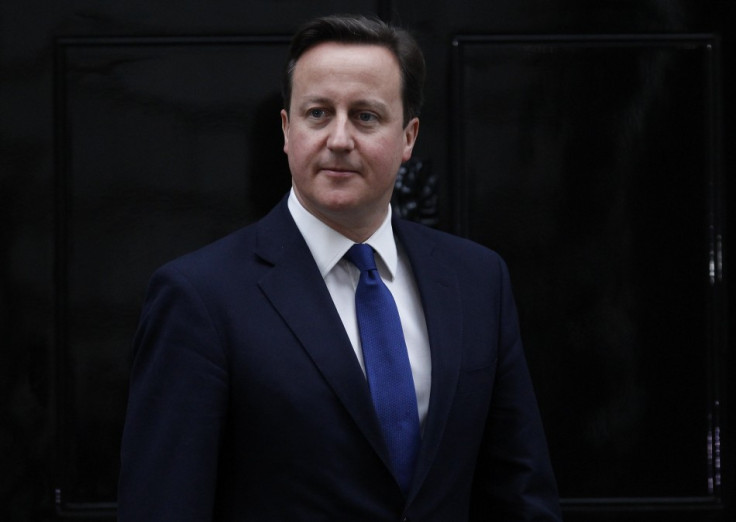David Cameron: Britain Needs Moral Capitalism Based on 'Something for Something'

Moral capitalism is based on the idea of "something for something", according to Prime Minister David Cameron.
Free markets can "promote morality" he insisted in a speech on 19 January, outlining his vision of "popular capitalism" as the future for Britain's economy.
"I believe that open markets and free enterprise are the best imaginable force for improving human wealth and happiness," he said.
"They are the engine of progress, generating the enterprise and innovation that lifts people out of poverty and gives people opportunity.
"And I would go further: where they work properly, open markets and free enterprise can actually promote morality."
This is because they create a "direct link" between "effort and reward", he claimed.
"The fundamental basis of the market is the idea of something for something - an idea we need to encourage, not condemn."
"Popular capitalism" means "genuine opportunities for people to participate and benefit" in the free market.
This is encouraged by the government's education reforms argues Cameron, who said the government's academies and free schools programme will raise attainment and quality in schools.
Cameron's government is under fire for consistently poor growth figures and rising unemployment, as latest figures show the number of unemployed people in the UK at a 17-year high.
"Here in Britain, it's clear that this is an active government with its sleeves rolled up, doing everything possible to get the economy moving," he insisted.
Labour Made a 'Faustian Pact' with Bankers
Attacking the previous Labour government for its relationship with the City, Cameron accused them of making a "Faustian pact" with the financial industry.
"[Labour] encouraged a debt-crazed economy because it needed to pay for spiralling welfare costs and a top-down, interventionist state," he said.
"It tolerated market failures because at heart it didn't really accept that markets could ever be made to work."
Other Leaders Call for 'Responsible' Capitalism
Defining a new capitalism is hot topic among the leaders of Britain's three main parties.
Both leaders of the Labour and Liberal Democrat parties are calling for "responsible capitalism.
"As the debate on a more responsible capitalism moves forward, Liberals will remain set ... an end to crony capitalism, where vested interests trump the national interest," said Nick Clegg, Deputy Prime Minister in the coalition government and leader of the Liberal Democrats, in a recent speech.
"A better balance of power, in the economy - and between politics and business. That is the route to a safer, more stable, more prosperous economic future. This is how we will spread wealth and share rewards," he said.
Ed Miliband, Labour's leader, is also vocal on his vision of a new capitalism.
"The argument for a new, more responsible capitalism is hard-headed, not soft-hearted," he said back in November.
"It is based on paying our way in the world, building long-term wealth and delivering rising living standards for the majority of people."
© Copyright IBTimes 2024. All rights reserved.






